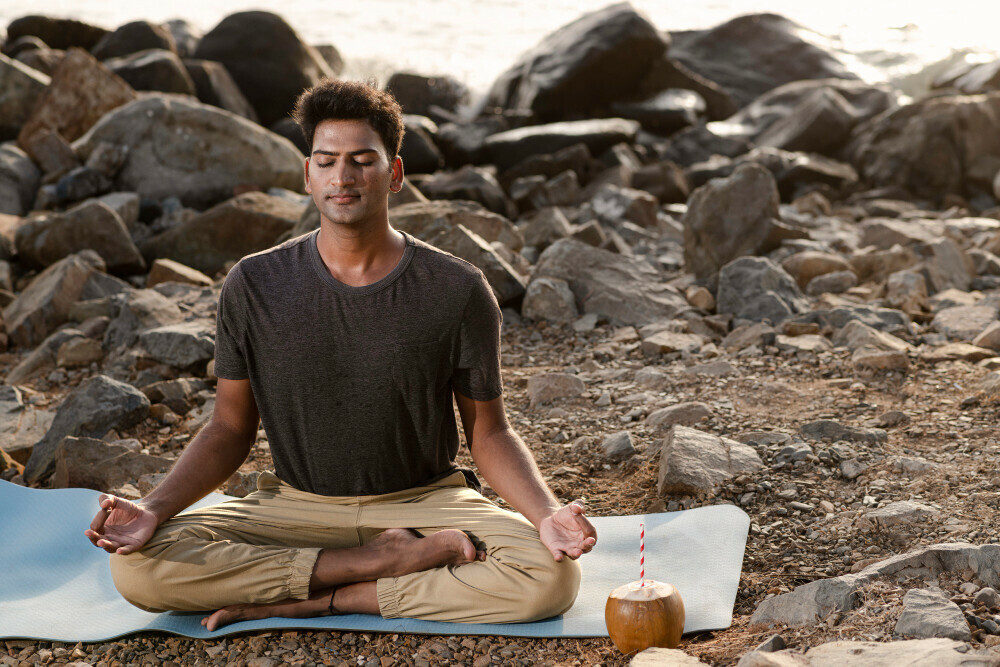How To Be You – Practice Oubaitori – Become Outstanding
Know Yourself
Socrates
Be Yourself – Everyone Else is Taken
Oscar Wilde
My Life, My Rules
Sadhguru
Have you ever heard of ‘Oubaitori’? It’s a Japanese concept that offers a fresh perspective on how we view our life’s journey. Unlike the familiar Western adage of ‘comparing apples to oranges’, Oubaitori challenges us to see the uniqueness in each person’s path. We are all more than just fruits compared on a simple scale.
The roots of Oubaitori weave through Japanese folklore and traditional wisdom. It’s more than just an old tale; it carries a philosophical weight that has remained relevant for centuries. These principles help us understand that we shouldn’t measure individual achievements and milestones against those of others.
Oubaitori isn’t a singular idea confined to Japanese culture, either. Similar thoughts thread throughout many societies worldwide, where they celebrate intrinsic value and personal growth over competition and conformity. Yet, the elegance and simplicity of the Japanese interpretation often resonate most.
As you read this article, I will explore how these long-held beliefs can apply to modern-day challenges. The concepts of Oubaitori can be particularly insightful when considering the pressures of social media, the urge to ‘keep up with the Joneses’, and the relentless pursuit of society’s narrow definitions of success.
The Personal Journey – How To Be You: Why Comparison Can Be Misleading

We live in a world inundated with social media highlights overflowing with stories of success and achievement. It’s easy to compare ourselves to others. But when I consider the concept of Oubaitori, I remind myself that such comparisons are unfair and inherently flawed.
Each person carries unique experiences and challenges that map out an individual path in life. When we measure our accomplishments against someone else’s, we disregard the diverse variables that define personal success. It’s not about who crosses the finish line first but the milestones we set and achieve along our journeys. Having an inner scorecard can help us with that process..
Too many people criticize their progress, unaware that their metrics are unsuitable yardsticks. A universal scale can’t quantify our backgrounds, struggles, or triumphs. It’s not about being the best compared to others; it’s about being the best version of ourselves.
So, I encourage you to celebrate your achievements, no matter how small they may seem. Someone else’s spotlight does not diminish your victories. Instead, it highlights your life’s distinct narrative—a narrative worth honouring in its own right without the need for external validation.
Oubaitori in Modern Context: Lessons for Self-Improvement
In today’s fast-paced world, continuous social updates often intensify the habit of comparing ourselves to others. By applying the concept of Oubaitori, an ancient Japanese philosophy, we can navigate the pressures of comparison. This principle reminds us that individuals are like different flowers growing at their own pace in a shared garden—each has a unique timeline and blooming conditions.
Harnessing the ethos of Oubaitori enables you to concentrate on your personal goals while steering clear of the pitfalls of comparison. Embracing your growth trajectory fosters a more grounded and fulfilling journey toward self-improvement. It’s about acknowledging where you are, setting realistic expectations, and working diligently towards where you want to be, free from the shadow of others’ paths.

The mindset encouraged by Oubaitori isn’t just about personal development in isolation. It extends to how we perceive and celebrate the achievements of those around us. When we uphold that each person’s journey is distinct, we shift from competition to support one another’s successes. This shift creates a more empathetic and collaborative environment in the workplace, the classroom, and within your social circle.
The following section will focus on concrete strategies for fostering an Oubaitori-inspired outlook. By incorporating simple yet profound practices into your routine, you can minimize the inclination to compare yourself to others and nurture a culture of individual excellence and mutual support.
Integrating Oubaitori into Daily Practice
I understand how I looked to others to measure my progress. It’s often an unconscious habit, but to truly embrace the principles of Oubaitori, I had to make a deliberate change. Here’s how you can do the same.
Start by pinpointing the moments when you want to compare yourself to others. It could be while scrolling through social media, attending a family gathering, or reviewing a peer’s work. Awareness is the first step toward change.
Setting personal benchmarks rather than measuring yourself against others is crucial. Establish your goals based on what’s realistic and fulfilling for you. This tailored approach fosters self-improvement that aligns with your values and circumstances.

Practising mindfulness can be incredibly effective. Meditation, deep breathing, or simply taking a moment to reflect on your thoughts can help you recognize when comparison begins to creep in. As you become more aware of these tendencies, you can gently redirect your focus to your journey and become balanced.
Another actionable step is to express gratitude for your unique abilities and accomplishments. Whether writing in a journal or reflecting daily, acknowledging what you’ve done helps you appreciate your path and builds confidence.
Surrounding myself with people who uplift and encourage individuality rather than competition has been transformative. Seek friends, mentors, or communities that celebrate uniqueness and support personal growth. This positive influence can reinforce your commitment to the Oubaitori philosophy.
Remember, integrating Oubaitori is a gradual process. It’s about consistent, small steps reinforcing your dedication to personal growth without external comparison. These steps, over time, can lead to significant transformation within yourself and the world around you. Transformation is the perfect segue into the next section, which explores the broader societal implications of embracing Oubaitori.
The Ripple Effect of Oubaitori: Impact on Society
Understand now that Oubaitori stresses the importance of not comparing yourself to others. It is not just a personal mantra; it holds the potential to transform society. By embracing our unique journeys and refusing to measure our lives against someone else’s ruler, we foster a world where every person’s unique contributions and successes are valued.
What would happen if we all began to evaluate success on our terms? Imagine an educational system that nurtures each student’s strengths rather than ranks them, workplaces that advance employees based on merit and growth instead of uniform benchmarks, and communities where diversity in life paths is celebrated, not standardized.
The societal embrace of Oubaitori could lessen the pressure that leads to stress and anxiety, often stemming from relentless comparison. When we appreciate our singular journeys, we’re likely to nurture empathy, encouraging a more inclusive society where understanding and cooperation thrive over competition and uniformity.
I’m not saying that Oubaitori is the magical remedy for all societal woes. It is a seed that can grow into a mighty tree of change. When we start by redefining personal success, we gradually refract this new mindset onto our communities, potentially reshaping societal norms and expectations.
As individuals, every small step we take towards internalizing oubaitori sends ripples through the waters of society, possibly leading to a future where each person can confidently say, ‘My path is mine alone, and it’s as it should be.’

